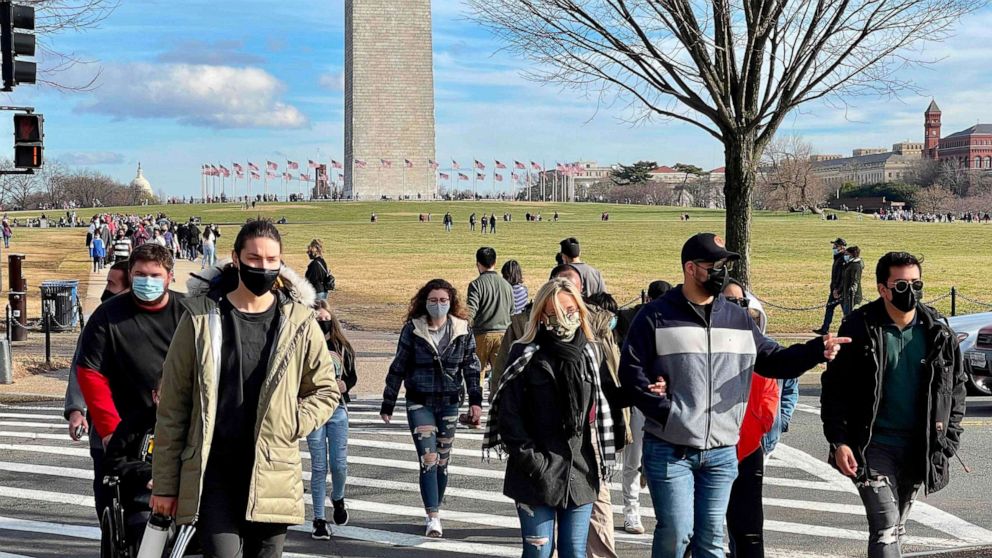
A pandemic of the novel coronavirus has now infected more than 84.6 million people worldwide and killed over 1.8 million of them, according to real-time data compiled by the Center for Systems Science and Engineering at Johns Hopkins University.

A pandemic of the novel coronavirus has now infected more than 84.6 million people worldwide and killed over 1.8 million of them, according to real-time data compiled by the Center for Systems Science and Engineering at Johns Hopkins University.
The United Kingdom will begin its rollout of the Oxford/AstraZeneca vaccine at hospitals on Monday morning, officials said.
The country's Department of Health and Social Care said 500,000 doses will be made available, "with tens of millions more to be delivered in the coming weeks and months."
"This is a pivotal moment in our fight against this awful virus, and I hope it provides renewed hope to everybody that the end of this pandemic is in sight," U.K. Health Secretary Matt Hancock said in a statement Sunday.
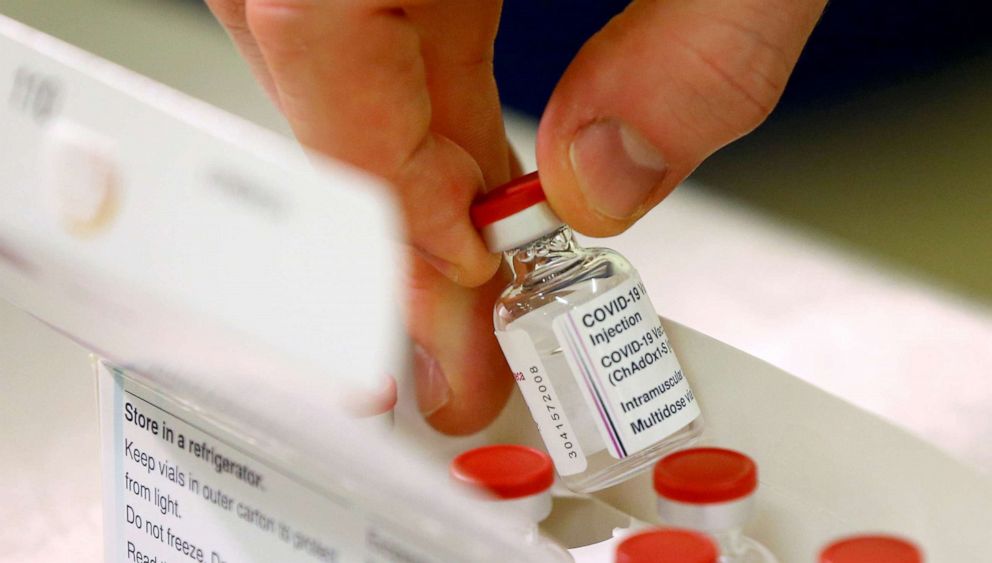
Patients will need a second shot within 12 weeks, according to officials.
The Oxford/AstraZeneca vaccine was approved for use in the U.K. last week, and the government has secured 100 million doses.
This vaccine does not need to be stored in extreme cold temperatures like the Pfizer/BioNTech and Moderna vaccines, and since it's manufactured in the U.K., transportation will be easier, according to the government.
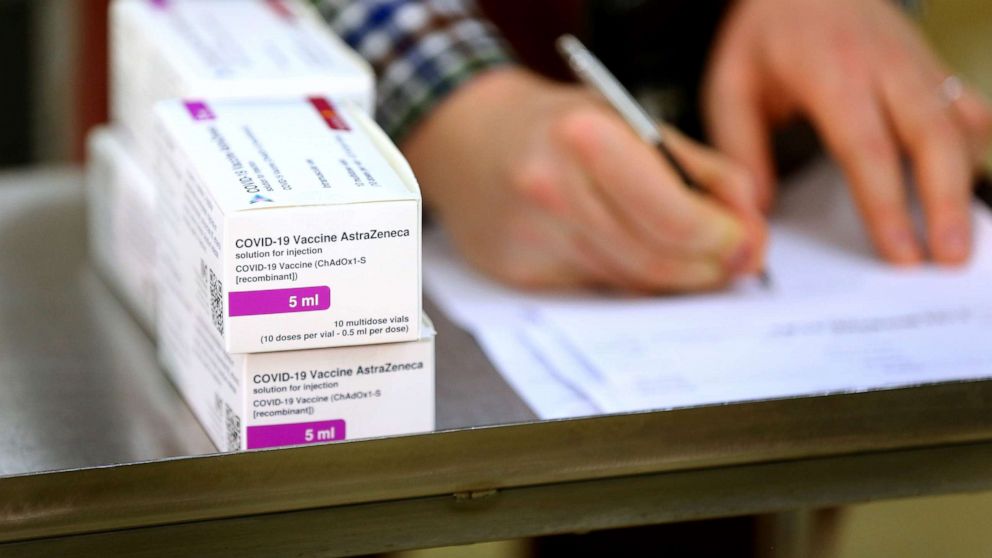
Over 1 million people in the U.K. have received the Pfizer/BioNTech vaccine since it was approved last month, according to the country's health department.
There are 730 vaccination sites in the U.K., and 280 more will be activated by the end of the week, according to health officials.
-ABC News' Zoe Magee
California health officials announced Sunday that there are over 21,510 people hospitalized with COVID-19, a new record high.
The Golden State recorded 45,352 new COVID-19 cases and 181 additional deaths from the disease on Sunday, bringing the totals to 2,391,261 million cases and 26,538 deaths, health officials said.
-ABC News' Matthew Fuhrman
U.K. health authorities on Sunday reported 54,990 newly confirmed cases of COVID-19 and 454 additional deaths from the disease, bringing the respective totals to 2,654,779 cases and 75,024 fatalities.
"What we're doing clearly is grappling with a new variant of the virus which is surging particularly in London and the southeast," British Prime Minister Boris Johnson said on the BBC's Andrew Marr Show on Sunday.
Johnson said he felt it was important to stress that the threat to kids, young people and (school) staff "is really very very very small indeed" and that parents should send their children to primary school on Monday as long as they are open. But he warned they may need to impose tougher measures in many parts of the country.
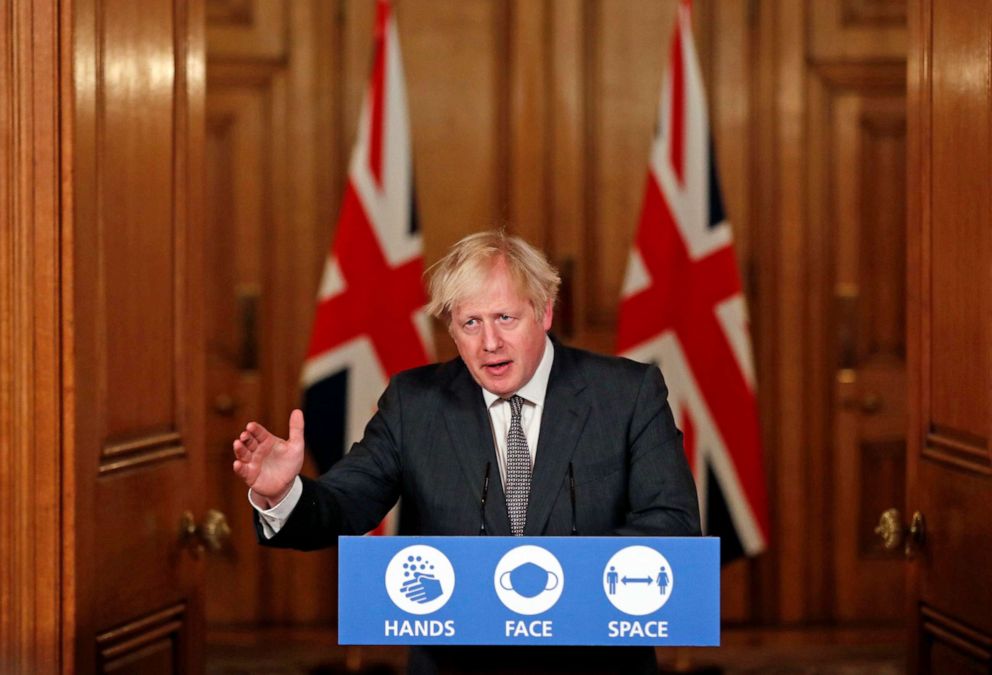
"I'm fully fully reconciled to that," he said.
On Saturday, the United Kingdom's National Education Union (NEU) said in a statement that they have made the "difficult decision" to advise members in primary schools that it is unsafe for them to be in school due to "crowded buildings with no social distancing, no PPE and inadequate ventilation," and move to remote learning.
"If Government does not act to follow the science, we must," the NEU said.
-ABC News' Christine Theodorou
The Transportation Security Administration screened 1,192,881 people at airport security checkpoints across the United States on Saturday, the agency reported.
Sunday is expected to be the biggest travel day since the start of the pandemic.
-ABC News' Sam Sweeney contributed to this report.
Public Health England does not recommend mixing COVID-19 vaccines from different suppliers, according to the agency's head of immunizations, Dr. Mary Ramsay.
"We do not recommend mixing the COVID-19 vaccines -- if your first dose is the Pfizer vaccine you should not be given the AstraZeneca vaccine for your second dose and vice versa," Ramsay said in a statement Saturday. "There may be extremely rare occasions where the same vaccine is not available, or where it is not known what vaccine the patient received. Every effort should be made to give them the same vaccine, but where this is not possible it is better to give a second dose of another vaccine than not at all."
The clarification comes amid questions over the British government's updated guidance on COVID-19 vaccines, which now says that if individuals who received the first shot go to an immunization site where that same vaccine is not available for a second shot, or if the first vaccine received is unknown, "it is reasonable to offer one dose of the locally available product to complete the schedule."
"This option is preferred if the individual is likely to be at immediate high risk or is considered unlikely to attend again," the guidance adds.
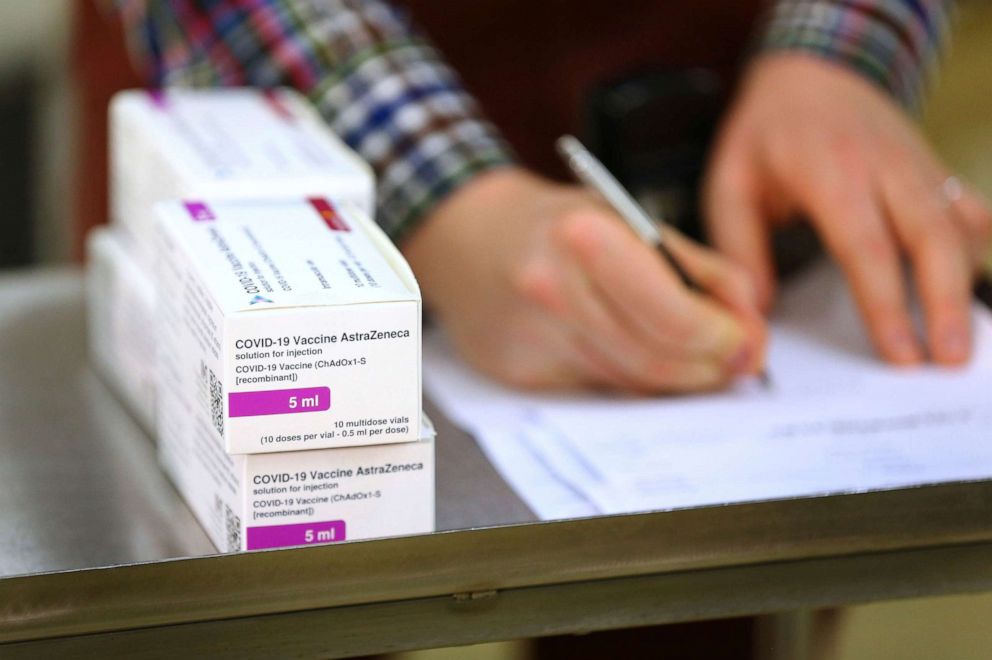
The guidance, which was updated Thursday, also notes that "there is no evidence on the interchangeability of the COVID-19 vaccines although studies are underway," and thus "every effort should be made to determine which vaccine the individual received and to complete with the same vaccine."
Next week, the United Kingdom is set to begin distribution of a COVID-19 vaccine developed by England's University of Oxford and manufactured by British-Swedish pharmaceutical giant AstraZeneca, after the drug was approved Wednesday for emergency supply. Another COVID-19 vaccine developed by U.S. pharmaceutical giant Pfizer and its German partner BioNTech was approved in the U.K. on Dec. 2 and rollout began a week later.
ABC News' Zoe Magee contributed to this report.